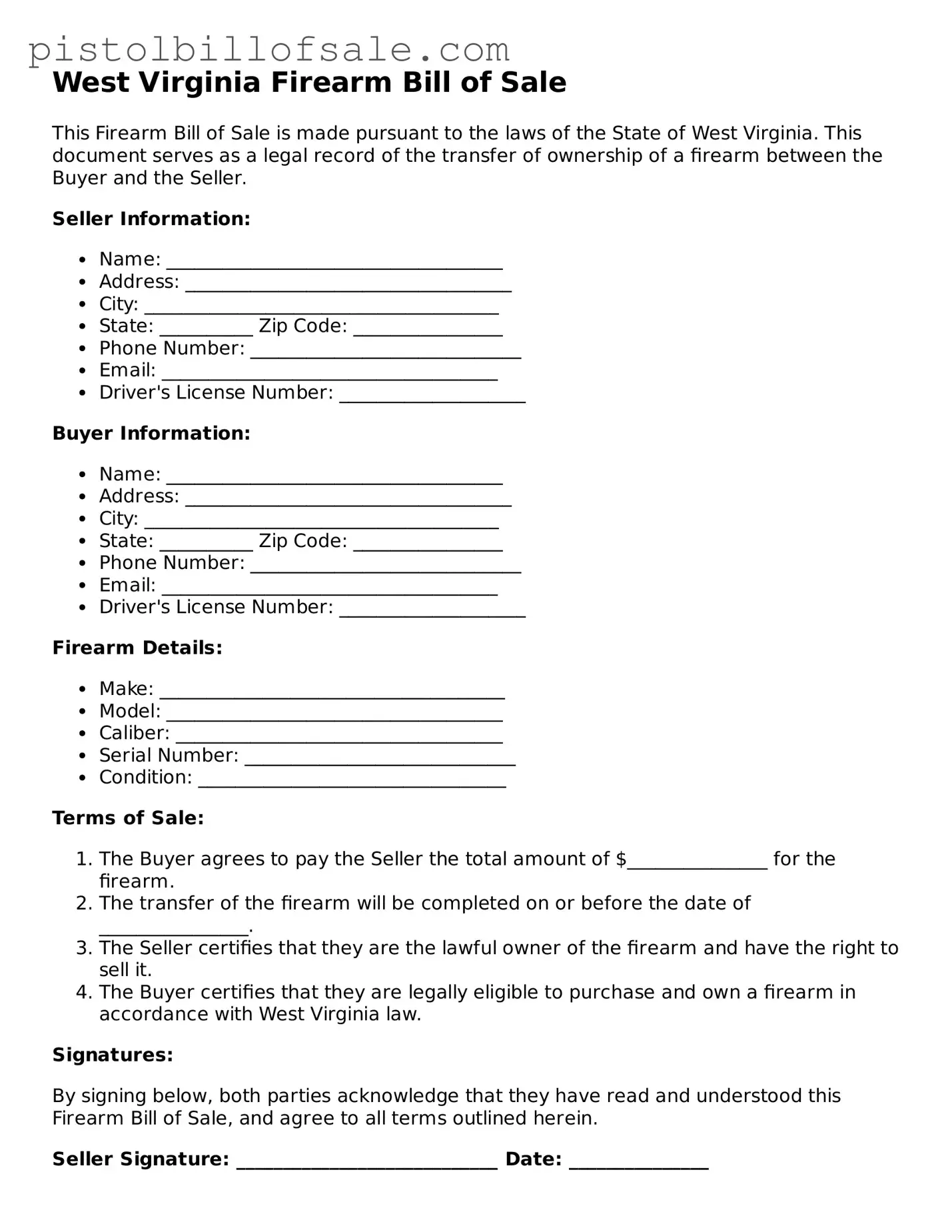In the state of West Virginia, the process of buying or selling a firearm involves specific documentation to ensure that all transactions are conducted legally and responsibly. One crucial component of this process is the Firearm Bill of Sale form. This document serves as a written record of the sale, capturing essential details such as the buyer's and seller's names, addresses, and the date of the transaction. Additionally, it outlines the specifics of the firearm being sold, including its make, model, caliber, and serial number. By providing this information, the form not only protects the interests of both parties but also helps to maintain accountability in firearm ownership. Importantly, while West Virginia does not mandate a background check for private sales, having a Bill of Sale can serve as proof of ownership and transfer, which may be beneficial in various legal contexts. Understanding the significance of this form is vital for anyone looking to engage in the buying or selling of firearms in the Mountain State.
